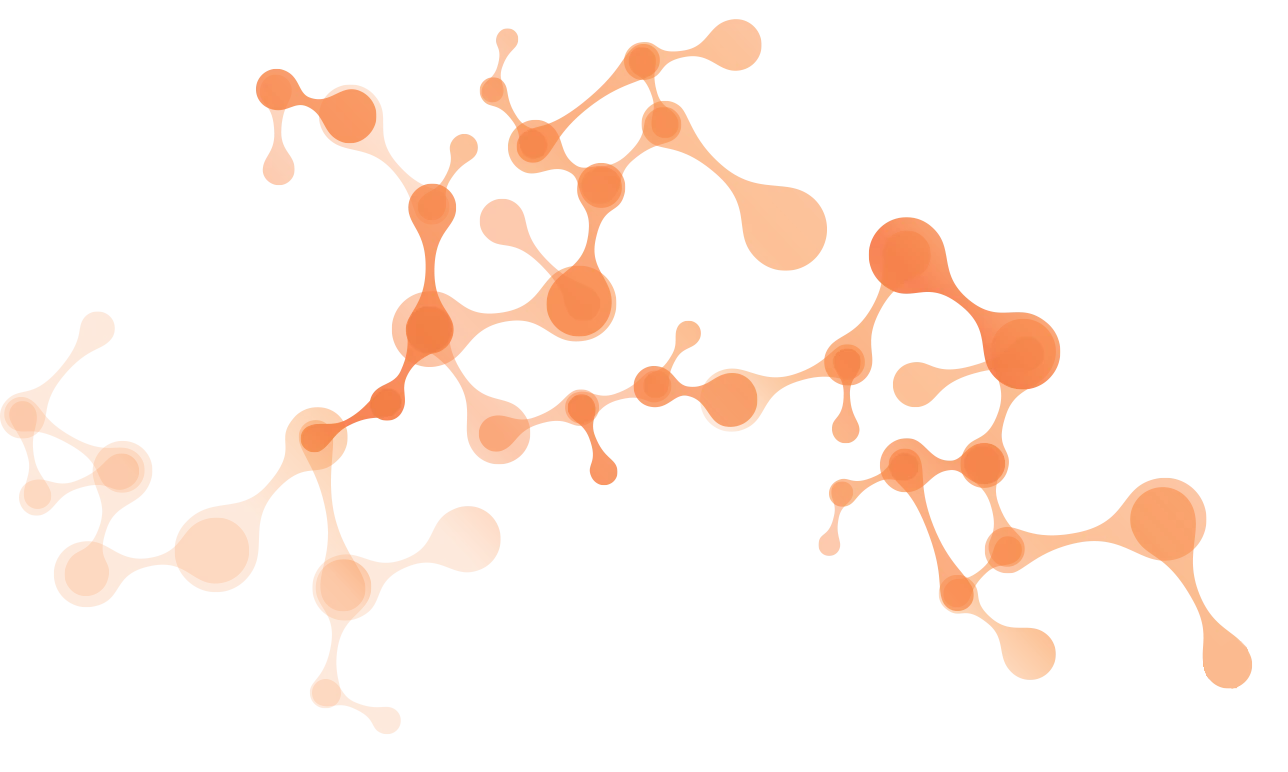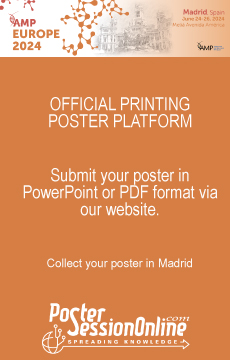Print your abstracts effortlessly in Madrid
AMP has secured a valuable partnership with a local service provider, exclusively for abstract authors, ensuring a seamless printing experience for their posters at the congress. They are well-versed in the specifications and guidelines necessary for conference posters, ensuring that your work is presented in the best possible format at AMP Europe 2024.
Presentation layout template
AMP has developed visually engaging templates for authors to display their presentations at the congress. We also welcome authors to use their own customised layout for presentations, as long as it follows the A0 format.
This service is offered neither by the AMP nor by MCI Deutschland and should be regarded only as a suggestion.
Abstract Submissions are now closed.
Extended abstract submission deadline: 29 February 2024
Notification: Accepted Authors will be notified by email by 21 March 2024
Publication in The Journal of Molecular Diagnostics
An abstract that is received by the submission deadline will be considered for publication as an online supplement to the June 2024 issue of AMP’s official journal, The Journal of Molecular Diagnostics (JMD). In order to be eligible for publication in the JMD, this abstract must not have been published elsewhere and may not be currently under consideration as an abstract for another meeting that occurs prior to June 2024. You may, however, submit here if there are significant and substantive new data/findings in this submission. Additionally, if you submitted and/or presented an abstract at the 2023 AMP Annual Meeting, or plan to submit this abstract for the 2024 AMP Annual Meeting, this restriction is waived, but you are encouraged to include additional data if available. Acceptance for publication is the sole decision of the AMP Europe 2024 Organizing Committee.
Abstract Topics
- Genetics/Inherited Conditions
- Hematopathology
- Infectious Diseases
- Informatics
- Solid Tumors
- Other (Education, Quality/Process Improvement, Tech Topics, etc.)
*Abstract submissions in the “Other (Quality/Process Improvement, Education, Tech Topics, etc.)” topic category may include descriptions of novel educational approaches, innovative programs, pioneering technologies, etc. As with other abstract submissions, these abstract submissions must demonstrate the scientific method, i.e., describe the methodology and data collection, identify how to measure, analyze, and report outcomes, and provide conclusions.
Awards
2024 International Membership Grant
Laboratory scientists who reside in countries outside of the United States and who are currently involved in clinical molecular diagnostics are encouraged to apply. Successful applicants will receive AMP membership, active for one calendar year. Current or past AMP members are not eligible for this grant.
AMP Global IMPACT Awards
(International Molecular Pathology Award for Conference Travel)
The AMP Global International Molecular Pathology Award for Conference Travel Awards are for applicants from lower-middle and low income countries as defined by the World Bank Classifications.
Deadline: Closed
AMP Global Young Investigator Travel Awards
The AMP Global Young Investigator Travel Awards provide travel assistance to the AMP International meeting to help nurture the next generation of molecular professionals in laboratory medicine.
Deadline: Closed
AMP Global Young Investigator Poster Awards
The AMP Global Young Investigator Poster Awards recognizes the best abstracts submitted by trainees or early career technicians or laboratory scientists who are first authors and who present outstanding basic or applied research in poster format. To be considered, please indicate your interest within the abstract submission site. Judging will take place onsite at the event.
Deadline: Closed
Submission Guidelines
Abstract Content
Please type your Abstract Title in title case, e.g., “This Is an Example of Title Case”. You may include italics (gene names), Greek letters, and special symbols, e.g. °C (degree sign), etc..
All abstracts are limited to a total of 3,000 characters (including spaces).
Your abstract must include the following information:
- Introduction: a brief discussion of the background or rationale of the study and/or the question addressed.
- Methods: the experimental approach, materials, and methods used in the study.
- Results: the data and results obtained in the study.
- Conclusions: the conclusions and/or implications of the results.
Format Requirements
The five most common reasons for rejection are:
- Previously presented/published
- Poor organization/clarity
- Does not provide novel information
- Insufficient scientific quality
- Insufficient data
Abstracts that are not submitted properly will receive an administrative reject and will not be reviewed.
Abstract submission deadline: February 29, 2024
- Abstracts must be submitted properly and in English. The online system is a database, with data fields (title, author 1, author 2, author 3, etc.) that are used to generate the published abstracts. Therefore, pay careful attention to the submission instructions and to the submission process, including spelling, capitalization, author names, etc. Avoid citing sources in your abstract. The abstract should focus on your original research, not on the work of others. The abstract should be self-contained and fully understandable without reference to other sources.
- All abstracts must include the required headers listed below; each header must be included in your text:
- Introduction
- Methods
- Results
- Conclusions
- Abstract Limits:
- Number of authors: 30
- Abstract Title: 200 characters
- Abstract Content: 3000 characters (with spaces and including section headers)
- You may include formatting (italicizing genes), Greek letters and special symbols, e.g., °C (degree sign), superscripts, etc. Data must be reported in narrative format in the abstract submission; tables and figured are not permitted.
- Your abstract will be rated using four criteria:
- Originality and Clarity
- Novelty
- Scientific Merit/Rigor
- Appropriate Conclusions
- Summary: Grounds for abstract rejection are:
- Abstracts that are not eligible for publication in JMD, i.e., have been submitted to another publication or to another meeting that occurs prior to June 2024. Exception: if you submitted and/or presented an abstract at an AMP Annual Meeting, this restriction is waived, but you are encouraged to include additional data if available. This waiver also applies when submitting to the AMP Annual Meeting & Expo events.

